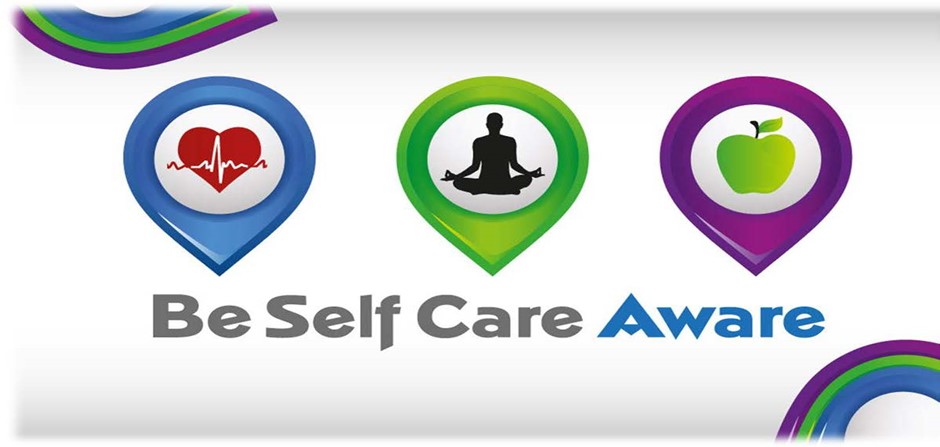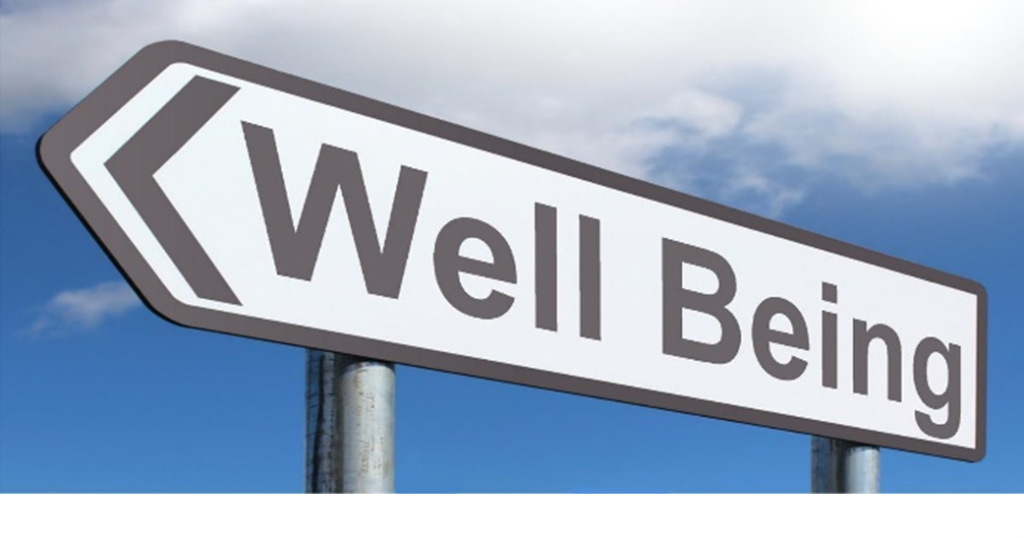Hello fellow colleagues, co-workers and friends these are certainly difficult and anxious times, and I would like to welcome you to the first of a series of short weekly well-being guides designed to help support you (and offer some tips) as we all begin to navigate the shockwaves of the Covid-19 virus together. I will be keeping each guide brief as I believe there is a lot for us to take in and make sense of right now, and I don’t wish to overwhelm you further.
During these unprecedented times we are all having to make huge changes to our everyday lives. Re-adjusting has meant the initial shock of physical separation and working remotely from home, and perhaps now as the dust settles we are beginning to battle a creeping sense of awareness of the fear of isolation and disconnection. I for one, am beginning to feel a bit like a ship without an anchor trying to sail towards an invisible shoreline.
At this point, as I am imagining, the initial excitement of working from home is beginning to wear off, the perceived benefits of a prolonged holiday break, thoughts of no-longer having to get up and travel to work, staying in your PJ’s all day, catching up on all those little things you have been putting off, is maybe starting to feel a little more tentative and fragile. That initial euphoria now being rumbled by other oscillating feelings. Things can soon melt away when faced with an uncertain world, a lack of social connection and such an overwhelming change to all aspects of our lives. Each one of these anxieties, and many others that we will face during this difficult time, have been well researched and not surprisingly have been found to have a detrimental effect on well-being and mental health. Let’s face it there is a reason why social isolation in the form of prison has been used as a punishment for hundreds of years, as human being we are hard-wired to seek out and develop social connection and interaction.
GENERAL TIPS:

So with this in mind I have put together some helpful suggestions as we start to attempt to sail these stormy waters together. The tips and ideas come with the awareness that everybody is unique and as such they are not meant to be used as a strict set of rules to follow, more to offer a friendly compass for your ship – use the ones that help you and adapt them to fit your own individual lives and situations.
- Create a schedule: We have lost a lot of control at this time so take some back by controlling your day. The brain picks up cues from our daily activities about how to best function; it perceives and predicts upcoming events and organises cognitive capacity (brain power) in relation to what it believes the need will be. For example, if your morning routine at home is the same as your routine when going to work, the brain will ready you for a working day. Whereas, if you stay in your PJ’s the brain may take this as a cue that it is a time to relax and sit on the sofa eating ice cream. Try to normalise your situation by creating a schedule as close to usual as possible, which I understand is very difficult to do at the moment. The brain doesn’t like inconsistent messages and it can get distressed, anxious, stressed, angry and overwhelmed when faced with situations that don’t match up. So set clear boundaries in your schedule, clear indicators to yourself of when you are working, when you’re involved in family/social time, and when you are taking time for yourself.
- Dress for the occasion: I will be the first to say, “I hate washing clothes”, so in no way am I encouraging anybody to create more work for themselves. However, a good way to change our mindset and boundary different parts of the day is with a change of clothes. It might sound like a strange, albeit a little crazy idea, but dress for work when we need to work and change into something more relaxing for down time, another change in the evening will help prepare for ‘sleepy time’. I for one have been thinking of ordering a onesie – I will leave that one to all of your imaginations!
- Take time away from screens: Working from home and/or in isolation is not the same as working from the office, or being home by choice. Imagine, if you will, that your mind is a bottle, that bottle has a limited capacity and can only hold so much. New challenges in your day-to-day life may seem small and insignificant – IT problems, other family members, lack of resources, having to eat chocolate hobnobs (they are not an adequate replacement for a chocolate digestive) and so on. If each of these issues is a mere thimble full of liquid, on their own they may seem like nothing, but add them to the many pints of liquid we take on every day, or over several days – WORK, FAMILY, GLOBAL UNCERTAINITY, LIFE, that bottle can fill up quickly and can soon overflow. You can help to manage this by taking regular breaks, turn off your computer and phone during lunch; take a break from any electronic devices and maybe step outside into the fresh air – take a deep, slow breath in as if you are blowing up a balloon in your belly, and long breath out to relieve any tension and stress….. repeat, repeat, repeat…. for a few minutes. Small strategies like these ones are proven to help us manage stress as they slow the production and release of stress hormones such as cortisol.
- Staying in the present: Most of the latest wave of evidence based psychological therapies now have a mindful aspect to the way they treat psychological distress. The neuroscience behind this is well researched with a general consensus that it is often our negative thinking patterns and beliefs, that can keep people from experiencing the present moment (which mindful practitioners sometimes refer to as the ‘here and now.’) During this time of real uncertainty we can be bombarded with thoughts and feelings which flood our capacity to remain calm and stable. There are those alarming “what if” questions about the future, like “what if my husband/ wife/child/parents or I get ill?” those are like Yoda masters at triggering worry. On the other side there can be those equally distressing “why” questions, like “why didn’t my government act sooner to protect me?” these thoughts can cause us to dwell on and analyse past events. Although these questions are an attempt to find a place and make sense of our distress, naturally their effect is the opposite. In fact all the worry, dwelling and analysing (of future or past events) will ultimately cause the brain to feel more anxious, flooded and even depressed. We are expecting to predict or control uncontrollable/unknown events without having the information to do so, and trying to meet these impossible demands can make our thoughts and feelings escalate like a tsunami. One small tip when you feel yourself living in either the past or future is to try using your senses to bring you back to the present moment; this is often referred to as ‘grounding’ oneself.
- Grounding Yourself: Concentrate on the sights around you, hear the sounds, take a deep breath in through your nose to smell, and feel any sensations throughout your body. Trauma experts also use this to help calm the body which might be making a fight, flight or freeze response. Scheduling in some mindfulness type exercises into your day can be very beneficial helping us to maintain a calm state of mind. Practicing mindfulness can help us have clearer and less anxious thought patterns; it is also helpful in releasing and letting go of any built up negative feelings like helplessness and anger. Furthermore, the neuroscience shows that we build more psychological benefit over time so it is worth a go! I have put some helpful links to apps and websites at the bottom for you to explore.
Whilst thinking about our well-being and its importance four key interlinked areas sprang to mind – physical, psychological, emotional, and spiritual. Each week together we will look at one of these core areas and I will offer more suggestions, ideas and tips. This week we are starting with our physical well-being. As we know our bodies are intrinsically linked to our emotional health, and our capacity to cope during these stressful times given such a rapid change to our everyday lives.
PHYSICAL WELL-BEING.
- Exercise: Please don’t underestimate how much exercise we all get just by going to work, even in jobs that involve sitting at a desk, So try and make sure you exercise regularly; it encourages the production of neurotransmitters in the brain that are responsible for motivation, positivity and happiness. You can combine this into your schedule to help boundary your working day. For example, I go for a 30minute walk at 8am in the morning and again at 5pm. This allows me to create a clear boundary between home life and work, stopping any confusion with not only my brain but also other family members.
- Eat healthy and regularly: It’s the old saying “you are what you eat”. The brain and body needs a variety of different food groups in order to produce what it needs to function. Your food is responsible for not only producing energy, but also the chemicals that regulate our emotions. Without them life can feel a lot like an emotional roller-coaster. With our regular food preferences being difficult to access at the moment, this is the perfect opportunity to expand our culinary experiences and perhaps try and cook something new. Remember the more colour on your plate the healthier and happier your body and brain will feel! It is also important to think of what we drink at this time and not just food, stay hydrated and be aware of any increase in the consumption of alcohol and coffee. Although alcohol and coffee can feel like they have beneficial effects at this time, like added energy and a distraction from your worries, these do not come for free. Every substance added to our body that has an artificial effect has the equal and opposite effect when it leaves. Over the long term an increase in our consumption could leave us feeling a lack of energy and psychologically and emotionally less stable.
- Get enough sleep: I will be the first to admit that even though Disney plus came out on a Tuesday I still stayed up till late into the night watching movies, telling myself “it’s okay I haven’t got to get up for work in the morning.” However, I did have to get up, and I did have to work, and I did feel exhausted, and I will confess a little bit weepy by the end of the day. Sleep deprivation has the same effect on the brain as drinking alcohol, so don’t be surprised if you are struggling to function and feel like you are on a choppy emotional sea if you are not getting enough sleep. As mentioned earlier the brain creates chemicals in relation to environmental cues, and the brain relies on these chemicals to get a good night’s sleep. So try to create and manage a normal sleep routine that sends clear messages to the brain that it is ‘nighty-night’ time.
Thank you for reading and getting to the end of this document, another task you have achieved today! I hope that you have found something useful to take away. Remember to be kind to yourself, we are all doing the best we can to find our own anchors, to stabilise our ships and adapt to new working practices, whilst looking after our families, friends and neighbours and learning to navigate unchartered sea. I wish you all the best.
Until next week stay safe and take care
Helpful links:
MINDFULNESS:
YouTube breathing mindfully- https://www.youtube.com/watch?v=WRxmJdmc5k4&feature=youtu.be&list=PLoUi4a4eu8HqmtAsoCF989-SrOObzU5Ff
Mindfulness website- https://selfcarecoaching.net/covid-self-care/
APP- Headspace
Online self-help resources:
Website- https://www.getselfhelp.co.uk/
BACP online Coronavirus advice to public. Advice on coping through these circumstances- https://www.bacp.co.uk/news/news-from-bacp/coronavirus/coronavirus-advice-for-the-public/
Recent Blogs
-
January 11, 2022
Week 4: Tips for Coping with isolation and working from home.
-
January 11, 2022
Week 3: Tips for Coping with isolation and working from home.
-
January 11, 2022
Week 2: Tips for Coping with isolation and working from home.








